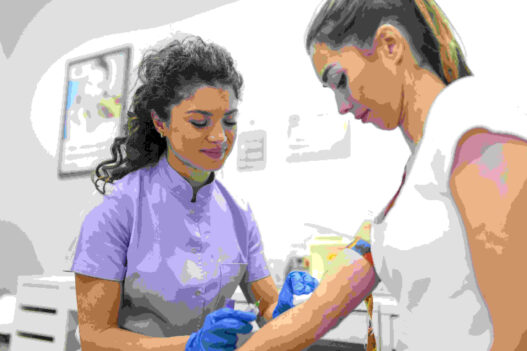Phlebotomy, the art and science of drawing blood from patients, is one of the most valuable yet underestimated skills within the healthcare industry. While often associated with specialised roles, mastering this skill can unlock countless opportunities for healthcare professionals and help improve patient care. Phlebotomy skills for healthcare professionals can be the key to more diverse, fulfilling work.
This blog will explore why phlebotomy is so vital, how it enhances your capabilities as a healthcare provider, and the practical steps to start honing this critical skill. Read on to discover why phlebotomy might be your secret weapon in developing a well-rounded healthcare career.
What Is Phlebotomy and Why Does It Matter?
Phlebotomy involves collecting blood samples for laboratory testing, transfusions, or medical research. It plays a key role in diagnosing and monitoring various health conditions, from diabetes and infections to cancer screenings.
For healthcare workers, understanding the significance of phlebotomy is crucial. It’s not just about drawing blood—it’s about collecting accurate samples while ensuring the patient’s comfort and minimising room for error. The ability to perform phlebotomy efficiently can set you apart within the workplace and improve outcomes for the patients you care for.
The Benefits of Learning Phlebotomy as a Healthcare Professional
To work in healthcare is to wear many hats, and having a phlebotomy under your skillset can bring tremendous value. Here’s why:
1. Improved Patient Interaction
Phlebotomy often requires close communication with patients who may be nervous about needles or procedures. Building trust during these moments is essential, and practising this skill can enhance your approach to patient care. Phlebotomy pushes you to develop bedside manners, empathy, and the ability to calm others—all of which are transferable to other areas of healthcare.
2. Career Versatility
Adding phlebotomy skills to your toolkit makes you more versatile. Hospitals, diagnostic labs, blood banks, and outpatient clinics are always in need of professionals who can perform blood draws. Even if you work in a role beyond direct patient contact, knowing phlebotomy allows you to step in during critical moments or emergencies.
3. Better Understanding of Diagnostics
When you engage in the practical aspect of phlebotomy, you gain greater insight into the diagnostic process. This experience helps you connect your actions to patient outcomes, reinforcing the importance of precision and care. For healthcare professionals like nurses or medical assistants, it adds depth to your practice and a greater appreciation for laboratory work.
4. Enhanced Employability
Employers highly value candidates with multiple skills, especially in times when medical staff shortages are common. Demonstrating proficiency in phlebotomy can make your CV stand out, increasing your chances of landing roles in competitive environments or progressing within your current organisation.
5. Building Confidence
The ability to successfully perform a blood draw has practical and psychological benefits. It builds confidence in handling needles, medical equipment, and patient interaction. For those starting their healthcare careers, mastering a skill like phlebotomy early provides a strong foundation for your professional growth.
Essential Skills Every Phlebotomist Must Master
While phlebotomy requires proper training and certification, several key traits and skills make the difference between a good and a great phlebotomist. Here’s what healthcare professionals should focus on when learning phlebotomy:
1. Steady Hands and Precision
Drawing blood requires accuracy to ensure minimal discomfort and the correct collection of samples. Developing dexterity and control through practice is essential for every phlebotomist.
2. Knowledge of Vein Anatomy
Understanding where veins are located and how to identify suitable veins for drawing blood is fundamental. A solid grasp of human anatomy ensures you perform the task effectively for varying patient needs.
3. Patient Communication
Phlebotomy is often stressful for patients. Your ability to explain the process, reassure anxieties, and maintain a calm demeanor can significantly improve the patient’s experience.
4. Attention to Hygiene and Safety
Phlebotomy involves direct contact with blood, which calls for the strictest hygiene protocols to prevent infections and ensure sterile procedures. Additionally, understanding how to dispose of needles correctly is non-negotiable.
5. Record-Keeping
Accurate labelling and documentation are just as important as the blood draw itself. Mislabelled or poorly documented samples can lead to serious consequences for diagnostics and patient care.
How to Start Learning Phlebotomy
If you’re interested in incorporating phlebotomy into your skillset, here are some practical steps:
1. Take Accredited Training Courses
Enrol in a certified phlebotomy training program where you can learn foundational knowledge and gain supervised hands-on experience. Many programs are designed to be completed within weeks, making it an efficient way to upskill.
2. Practice with Mentors
Seek guidance from experienced phlebotomists or supervisors at your workplace. Watching professionals in action and receiving constructive feedback on your technique helps accelerate the learning process.
3. Understand Equipment
Familiarise yourself with a variety of phlebotomy equipment, such as syringes, butterfly needles, and tourniquets. Knowing the tools of the trade ensures you’re prepared for different medical scenarios.
4. Prepare for Certification
Certain regions, such as the UK or the US, require phlebotomy certification to perform the task independently. Research requirements in your area and prepare accordingly.
5. Focus on Skill Consistency
Phlebotomy is like any physical skill—the more you practise, the more confident and consistent you’re likely to become. Consider volunteering opportunities or additional on-the-job shadowing to refine your approach.
Adopting Phlebotomy Skills for Healthcare Professionals
Mastering phlebotomy may initially seem daunting, but the process is incredibly rewarding. By acquiring this skill, healthcare professionals gain an edge in patient care, employment opportunities, and technical ability.
Whether you’re a nurse wanting to expand your skillset or a healthcare assistant looking for growth, consider exploring phlebotomy training programs. This in-demand skill sets you apart from the crowd and helps you deliver an even higher standard of care.
Final Thoughts
Phlebotomy isn’t just about drawing blood—it’s about enhancing your role as a healthcare professional while empowering you to make a tangible impact on patient outcomes. This simple yet critical skill can unlock doors to new opportunities and make you an even more valuable contributor to medical teams.
If the idea of taking your healthcare career to the next level excites you, now is the time to start learning phlebotomy. Read more here and Thank you.



















